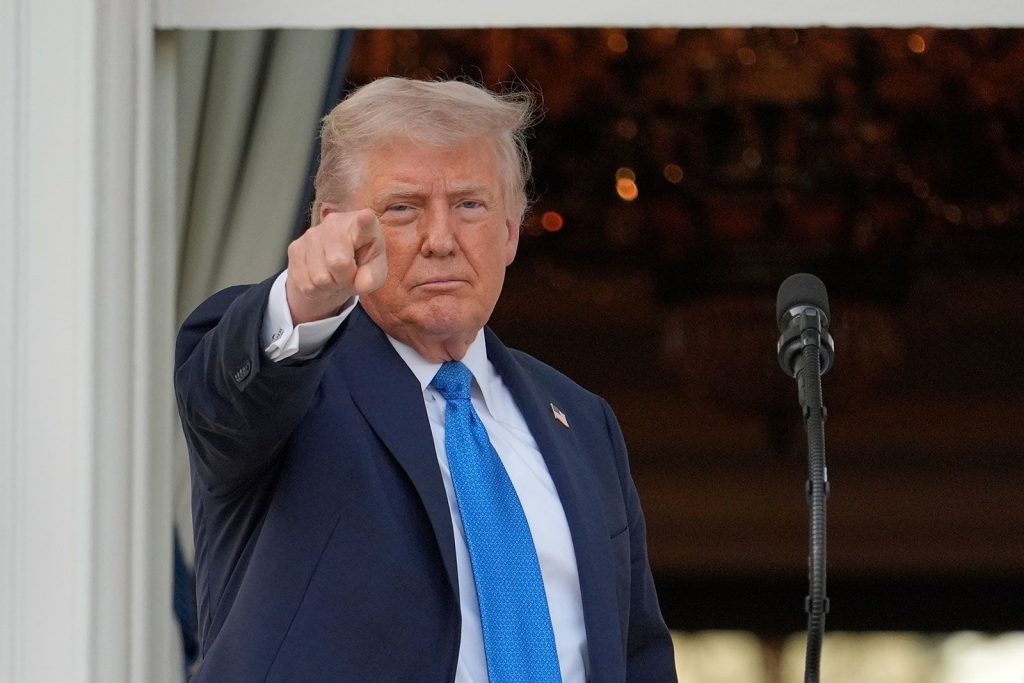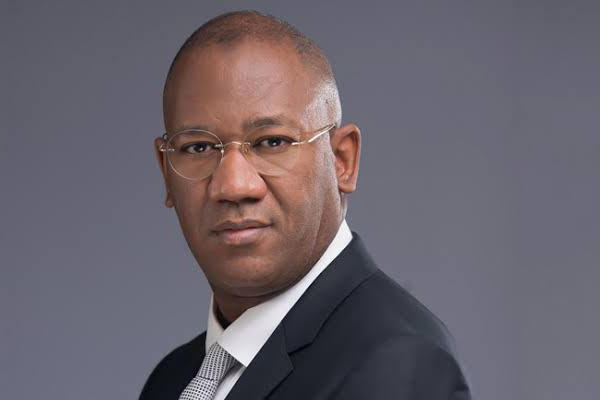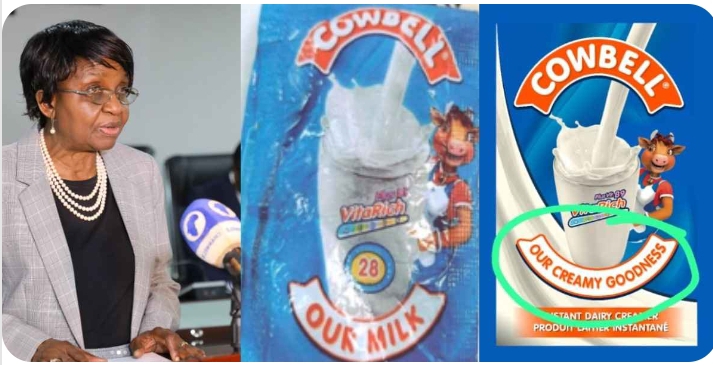Economy
Pan African Business Forum supports Okonjo-Iweala for WTO top job
With three candidates contesting the coveted job of next Director General and chief executive of the World Trade Organization, the highly influential Pan African Business Forum, PABF, has publicly declared its support for the candidature of Dr Ngozi Okonjo-Iweala the widely respected former Nigerian Finance Minister and Managing Director of the World Bank in charge of Africa, South and Central Asia and parts of Europe.
PABF’s support will prove useful to her cause; although not a household name among Africa’s general public this grouping of like-minded high tier public and private sector officials, both serving and retired, has proved very influential in the continent’s corridors of power.
For example its lobbying contributed significantly to the appointment of former South African presidential candidate, Dr Nkosazana Dlamini Zuma as chief executive of the African Union Commission during the previous decade.
But even with PABF’s support, Dr Okonjo-Iweala faces a very competitive contest for the top job in the multilateral organization that regulates global international trade.
Nevertheless, the Forum is fully convinced that she is the best option for a job that itself will be an extremely tough one amid global supply chain disruptions instigated by the COVID 19 pandemic and trade tensions between the United States, China and Western Europe, as well as BREXIT, all of which are encouraging a retreat from multilateralism in trade by several countries around the globe.
But Dr Okonjo-Iweala is already the front runner in the contest because of her huge accomplishments both the World Bank and in Nigeria which have earned her deep respect and renown globally.
Indeed, in the recent past she has been a leading candidate for the job of managing director of the International Monetary Fund, getting closer to that job than any citizen from a developing country before, or since.
“This is a unique opportunity now unfolding, to win the trust and confidence of all its members around the world” points out Dr Ladislas Agbesi, the Beninoise and Ghanaian President of PABF, who is domiciled in South Africa, where the Forum is also headquartered.
“The big, rich economies that are currently embroiled in trade disputes with each other need someone who they see as a neutral arbitrator and the smaller, relatively poor economies need someone who they can trust not to simply support the interests of the rich ones at their expense, which has been their thinking up till now.”
Dr Okonjo-Iweala herself acutely realizes this and indeed bases her campaign for the job largely on her suitability in this regard.
“I see the ability for developing countries, especially the least developed countries, to benefit, whilst not taking away from developed countries.
“This is why trade is so interesting, is that you can actually have win-win outcomes for the participants and not a zero-sum game,” she proposes.
“To get to these issues, you need an honest broker, an objective head, someone with the right skills, someone who knows the subject but with strong political and negotiating skills, the managerial skills to move things and also be someone who can listen well, who is very solutions–oriented.”
Her educational background, her working experience and her track record of accomplishment all support her suitability.
Dr. Okonjo-Iweala was educated at Harvard and has a Ph.D. in Regional Economics and Development from the Massachusetts Institute of Technology.
She is the recipient of numerous awards, including Honorary Doctorates from Trinity College, Dublin, Brown University and Amherst College, among others.
She is the recipient of Time magazine’s European Hero of the Year Award, 2004, for her work on economic reform in Nigeria, Euromoney magazine Global Finance Minister of the year, 2005, Financial Times/The Banker African Finance Minister of the year 2005, This Day (one of Nigeria’s premier newspapers) Minister of the Year award 2004 and 2005.
In 2006, she was named by Forbes magazine as one of 100 most powerful women in the world.
Portfolio, the Conde Nast International Business Intelligence magazine, called her one of 73 “Brilliant” business influencers in the world of business and public service.
Dr. Ngozi Okonjo-Iweala is former Minister of Finance for the Federal Republic of Nigeria, appointed in July 2011.
She previously served as a Managing Director of the World Bank where she had oversight responsibility for the World Bank’s operational portfolio in Africa, South Asia and Europe and Central Asia.
Dr. Okonjo-Iweala spearheaded several World Bank initiatives to assist low-income countries during both the food and later financial crisis.
She chaired the replenishment of over $40 billion for the International Development Association (IDA), the grant and soft credit arm of the World Bank.
From September 2006 to November 2007, she was Distinguished Visiting Fellow at Brookings Institution. From June to August 2006.
She was Minister of Foreign Affairs of Nigeria, overseeing Nigeria’s External Relations; and from July 2003 to June 2006 she served a prior term as Minister of Finance and Economy of Nigeria and head of Nigeria’s much acclaimed Presidential Economic team responsible for implementing a comprehensive home-grown economic reform program that stabilized the macro-economy and tripled the growth rate to an average 6% per annum over three years.
Her achievements as Finance Minister garnered international recognition for improving Nigeria’s financial stability and fostering greater fiscal transparency to combat corruption. In October 2005, she led the Nigerian team that negotiated the cancellation of 60% of Nigeria’s external debt ($18 billion) with the Paris Club.
The debt deal also included an innovative buy-back mechanism that wiped out Nigeria’s Paris Club debt and reduced the country’s external indebtedness from $35 billion to $5 billion.
Dr. Okonjo-Iweala oversaw Nigeria’s first Sovereign credit rating of BB—from Fitch and Standard and Poor’s—a rating that grouped Nigeria with other emerging market countries such as Vietnam, Venezuela and the Philippines.
Previously, she pursued a 21-year career as a development economist at the World Bank, where she held the post of Vice President and Corporate Secretary.
This included two tours of duty (1997-2000) working in the East Asia Region during the East Asian financial crisis; two duty tours in the Middle East Region, the last (2000-2003) as Director, Operations (deputy vice-president) of the region.
Dr Okonjo-Iweala also served as Director of Institutional Change and Strategy (1995-1997). From 1989 to 1991, she was Special Assistant to the Senior Vice President, Operations.
Adding to his explanation as to why PABF has chosen to actively support her candidature, Dr Ladislas Agbesi further asserts that “Her vision for the WTO is spot on. The direction she wants for the organization is precisely what it needs.”
“One very critical issue is going back to the fundamental principles on which trade was founded,” she espouses.
“This multilateral trade system delivered, because it was delivering for all.
“The principles of stability, predictability, non-discrimination, fairness, transparency – these are all the important principles on which the WTO and the world trading system was founded. It delivered, it stopped all the trade wars and it can deliver again.”
Oscar Ugoh, PABF’s vice president, a highly regarded Nigerian media entrepreneur and corporate publicist who is domiciled in Ghana, adds his voice to the Forum’s stance.
“Her education as a thoroughbred financial economist provides the deep technical skills required for the job” he asserts.
“Her track record of achievement as Nigeria’s finance minister evidences her excellent negotiating skills.
“Her experience at the highest level in the World Bank has given her complete insights into the workings of economic multilaterism in practical form.
“Her nearly successful candidacy for the post of managing director of the IMF illustrates the global respect she has deservedly earned from member countries of the WTO.
“Combined, this makes her perfectly suited to lead the WTO through these trying times.
“Indeed it is instructive that the WTO has not conducted any comprehensive multilateral trade negotiations since the Doha round back in 1995.
“Dr Okonjo-Iweala acknowledges this as a failure but insists that she has the solutions.
“So does the PABF.”
Economy
Fidelity Bank Resumes International Transactions on Naira Debit Cards
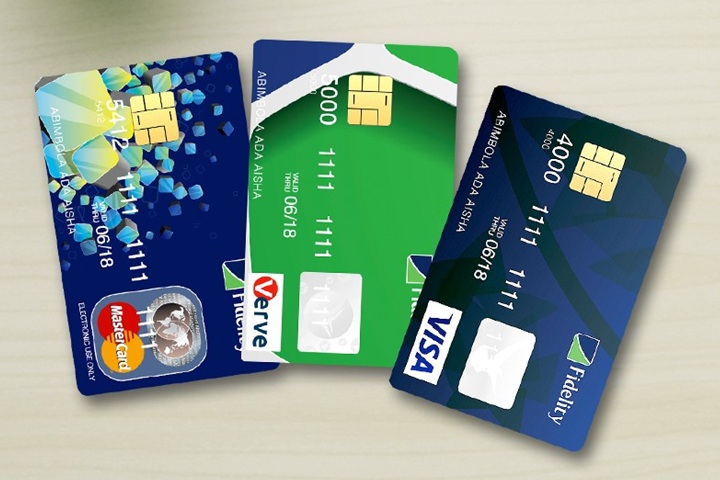
Tier-one Lender, Fidelity Bank Plc., has announced the resumption of international transactions on its Naira Debit Cards.
This recommencement gives customers the freedom to make seamless payments abroad, online, and at ATMs outside the country.
The Divisional Head of eBanking, Fidelity Bank, Ifeoma Onibuje, shed light on the development.
Onibuje said: “We are delighted to inform the public that Fidelity Naira Cards are now enabled for global use.
“This means that our travelling customers can now utilize their Naira Debit cards outside the country to shop, spend and withdraw internationally without hassles.”
“Consequently, our customers can now spend up to $1,000 quarterly for international POS and online transactions; and withdraw up to $500 quarterly on international ATMs.”
The announcement offers Fidelity Bank customers another way to complete international transactions, in addition to the Bank’s existing foreign currency debit and credit cards.
The bank stated that it further reinforces its commitment to delivering solutions that fit seamlessly into customers’ lifestyles.
With Fidelity Bank’s VISA and Mastercard Naira Debit Cards, Nigerians can now enjoy effortless global access.
Beyond payments, Fidelity VISA cardholders, one of the variants of the bank’s card offerings, also enjoy premium travel and lifestyle benefits.
The benefits range from airport lounge and spa access via the Visa Airport Companion App, to fast-track immigration lanes and 20% discounts on SIXT car rentals worldwide.
This move, the bank said, also reflects its commitment to provide secure, convenient, and reliable banking services that empower customers in Nigeria and beyond.
The bank noted that it has deliberately made the process of getting a Fidelity Naira card seamless.
It stressed that customers can easily apply for their Fidelity VISA or Mastercard Naira Debit card via the Fidelity Mobile App or simply visit the nearest Fidelity bank branch to request for one and they can start transacting globally with ease.
Ranked among the best banks in Nigeria, Fidelity Bank Plc is a full-fledged Commercial Deposit Money Bank serving over 9.1 million customers through digital banking channels, its 255 business offices in Nigeria and United Kingdom subsidiary, FidBank UK Limited.
The Bank is the recipient of multiple local and international Awards, including the 2024 Excellence in Digital Transformation & MSME Banking Award by BusinessDay Banks and Financial Institutions (BAFI) Awards; the 2024 Most Innovative Mobile Banking Application award for its Fidelity Mobile App by Global Business Outlook, and the 2024 Most Innovative Investment Banking Service Provider award by Global Brands Magazine.
Additionally, the Bank was recognized as the Best Bank for SMEs in Nigeria by the Euromoney Awards for Excellence and as the Export Financing Bank of the Year by the BusinessDay Banks and Financial Institutions (BAFI) Awards.
Celebrity/Entertainment
How Nigerian TikToker Geh Geh Made ₦45 Million in One Night

A Nigerian TikTok sensation known as “Geh Geh” has stunned the internet after pulling in over $30,000 from a single live session that attracted more than 177,000 viewers.
The young entertainer, who calls his platform the “University of Wisdom and Understanding,” has quickly built a cult following with his raw and unfiltered lectures about women, money, and survival in Nigeria.
During the live broadcast on Thursday, August 21, viewers showered him with virtual gifts that he later calculated to be worth over $30,000.
The milestone instantly pushed him into the spotlight as one of Nigeria’s fastest-rising online personalities.
Reacting in disbelief after the stream, Geh Geh said:
“More than 177,000 people watch my lectures today. Jesus! University of wisdom and understanding, the only university where once you graduate, woman go fear to ask you for money.”
Despite not having a formal education, Geh Geh proudly calls himself “the first illiterate to find a university in the history of Nigeria.” In a video after the viral live, he reminded fans of his humble background:
“I no be graduate too, but by the grace of God, I don find school. I be orphan, but now Nigerians don show me love.”
The TikTok star admitted he was overwhelmed by the generosity of his supporters.
“See gift I made over… more gift when they give me today is worth about $30,000. I no go take this love for granted, because I no really do anything for am.”
His rise has been hailed as proof of how social media is transforming lives in Nigeria. With no degree, no rich background, and no industry connection, Geh Geh has managed to build a fanbase that now calls themselves “students” of his unusual university.
Still, his controversial views on women and relationships continue to spark heated debates. While some dismiss his advice as reckless, others insist his boldness speaks directly to Nigeria’s frustrated youth.
Reflecting on his sudden fame, Geh Geh compared himself to great thinkers:
“If Nigeria be country wey value great people, by now them suppose dey compare people like me with Aristotle, Wole Soyinka, Einstein… but I thank God say people dey see my head and my own difference.”
From an orphan with no prospects to a viral star earning in dollars, Geh Geh’s story has become one of digital empowerment.
His journey shows how platforms like TikTok are creating new forms of fame, money, and influence for Nigerians especially those once written off by society.
Africa
UK Dominates Nigeria’s Q1 2025 Capital Inflows With N5.5tn — NBS

The United Kingdom has once again cemented its position as Nigeria’s leading source of foreign capital, accounting for more than N5.5 trillion in inflows during the first quarter of 2025, according to the latest data from the National Bureau of Statistics (NBS).
Figures from the Capital Importation Report show that capital from the UK rose to $3.68bn (N5.52tn) in Q1 2025, representing 65.26% of Nigeria’s total $5.64bn inflows for the quarter.
This marked a 29.2% rise from the $2.85bn recorded in Q4 2024 and more than double the $1.81bn inflows seen in Q1 2024.
This underscores Britain’s dominance in Nigeria’s external financing profile and highlights the strong bilateral financial ties between both nations.
Breakdown of Q1 2025 Capital Inflows by Country
United Kingdom: $3.68bn (65.26%)
South Africa: $501.29m (8.88%)
Mauritius: $394.51m (6.99%)
United States: $368.92m (6.54%)
United Arab Emirates: $301.72m (5.35%)
Together, these top five countries accounted for over 92% of Nigeria’s capital inflows, reflecting both the concentration of Nigeria’s foreign investments and the risks of over-dependence on limited markets.
Other contributors included:
Cayman Islands: $114.76m (up sharply from $0.64m in Q4 2024)
Belgium: $70.54m
France: $47.33m
Netherlands: $42.68m (down significantly from $425.61m in Q4 2024)
Singapore: $36.79m
Overall, capital importation into Nigeria stood at $5.64bn in Q1 2025, up 10.9% from Q4 2024’s $5.09bn, and a remarkable 67.1% higher than the $3.38bn recorded in Q1 2024.
The NBS noted:
“Capital Importation during the reference period originated largely from the United Kingdom with $3,681.96m, showing 65.26 per cent of the total capital imported.”
A separate survey by Strategy Management Partners (UK) reveals that British companies are increasingly targeting Africa as a strategic growth frontier.
50% of UK firms with annual turnover above £20m are already operational in Africa and planning expansions.
Another 28% of executives said they are interested but remain cautious about entry strategies.
Africa’s appeal lies in its resource wealth and demographic potential:
30% of the world’s mineral reserves
8% of natural gas reserves
12% of oil reserves
65% of the world’s arable land
Projected to host 25% of the global workforce by 2035
Seven key sectors remain magnets for foreign capital inflows into Nigeria and Africa at large:
1. Technology
2. Oil & Gas
3. Power and Renewable Energy
4. Agriculture
5. Manufacturing
6. Infrastructure
7. Strategic Minerals
Analysts warn that while Nigeria’s reliance on UK-driven inflows reflects strong global confidence, the concentration of sources exposes the economy to external shocks if investor sentiment shifts in these countries.
Diversification of investment partnerships particularly within Asi
a, the Americas, and intra-African trade will be crucial to ensuring long-term resilience in capital inflows.
Africa
U.S. Govt Reacts to Nigerian Minimum Wage

The United States government has said that Nigeria’s new N70,000 minimum wage has lost real value due to the sharp fall of the naira, leaving millions of workers trapped in poverty.
According to the 2024 Country Reports on Human Rights Practices, released by the U.S. Department of State’s Bureau of Democracy, Human Rights, and Labour, the wage translates to just $47.90 per month.
The report noted that currency devaluation and weak enforcement have undermined the wage increase.
The report also revealed that many states are yet to implement the new wage law. Several governors cited financial challenges as the main excuse.
Even where the law exists, compliance remains poor because of limited labor inspectors and weak oversight from authorities.
Wage Devaluation and Exclusion
The report highlighted that firms with fewer than 25 workers are excluded from the minimum wage law, leaving millions of employees without protection.
This also explained that about 70 to 80 percent of Nigeria’s workforce operates in the informal sector, where wage and labor rights are almost never enforced.
This means a majority of Nigerians continue to earn far below the national benchmark, despite the government’s approval of N70,000 as the new minimum wage.
The U.S. report stressed that the naira’s sharp decline, trading above N1,500 to the dollar, had worsened the wage erosion. This has left workers unable to afford basic needs, pushing many deeper into poverty.
Human Rights and Labor Challenges
The document pointed out that weak enforcement of labor laws contributes to worsening poverty levels in the country.
Workers in the informal sector, such as street vendors, artisans, and small traders, rarely benefit from labor protections.
The report also noted that Nigeria’s minimum wage is rarely sufficient to cover basic food, housing, and transport needs.
This has further exposed structural gaps in the government’s approach to economic reforms and poverty reduction.
Governors Push Investment Platform
Meanwhile, the Nigeria Governors’ Forum (NGF) has launched a new investment initiative called NGF Investopedia.
The platform seeks to attract capital flows into bankable projects across all 36 states, with the goal of tackling Nigeria’s annual $100 billion infrastructure financing deficit.
The launch event in Abuja gathered governors, international partners, and investors. The forum described the platform as a long-term strategy to unlock growth opportunities across states and strengthen Nigeria’s subnational economies.
NGF Chairman and Kwara State Governor, Abdulrahman AbdulRazaq, said Nigeria must urgently leverage its human and natural resources to address poverty and joblessness.
“Here is Africa’s largest economy, endowed with abundant human and natural resources,” he said, stressing that state governments must play a bigger role in attracting investments and supporting local industries.
A Widening Gap
The contrast between the U.S. report on wage decline and the governors’ push for investment highlights Nigeria’s economic paradox.
While authorities promote foreign capital inflow, millions of workers continue to survive on wages that have lost most of their value.
With inflation rising, food prices soaring, and the naira weakening, the gap between earnings and cost of living keeps widening.
Unless enforcement improves and the informal sector is integrated into wage protections, the N70,000 benchmark may remain symbolic rather than effective.
Economy
Global Card: Fidelity Bank Hits Milestone As Fidelity Naira Card Accepted Globally

Fidelity Bank may have hit another milestone the Fidelity Naira Card is now accepted globally.
This was disclosed in a message sent to Diaspora Digital Media (DDM) via email on Monday.
According to the statement entitled “Your Fidelity Naira Card Now Works Globally; Shop, Pay and Withdraw with Ease!“, customers can buy favourite global brands online using their Fidelity Naira Card.
The band also stated that they can equally pay at POS terminals abroad and make cash withdrawals at ATMs as they travel.
The message reads:
“We’re excited to let you know that your Fidelity Naira Card is now enabled for global use — so you can shop, spend and withdraw internationally with confidence.
“Here’s what you now enjoy every quarter:
|
Channel |
Transaction Limit |
| ATM Withdrawal abroad | $500 |
| Online/Web & POS Payments | $ 1,000 |
“What does this mean for you?
- Shop your favourite global brands online
- Pay at POS terminals abroad with ease
- Withdraw cash at ATMs when you travel.”
The statement, however, noted that the $1,000 quarterly limit applies to all international transactions combined, including ATM withdrawals, online purchases, and POS payments.
The bank urged customers who may need assistance with setting card limits or activating their cards for global use, to contact the bank’s customers care “Centre Trueserve”, which is available round the clock, whether in Nigeria, or outside the country.
“Your world, your card — spend smart, spend globally with Fidelity,” the message concludes.
-
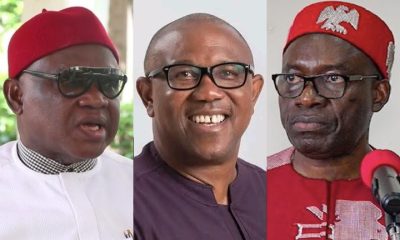
 Featured4 days ago
Featured4 days agoYour Attacks on Peter Obi Are Petty, Stop It! Chekwas Rebukes Soludo
-
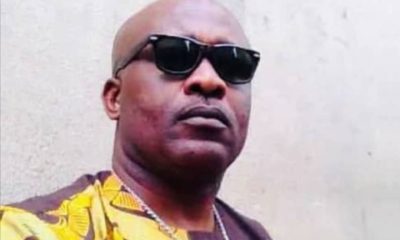
 News4 days ago
News4 days agoTension in Anambra community as senior police officer shoots kinsman dead
Colleagues, others try cover-up; victim's family fights back
-
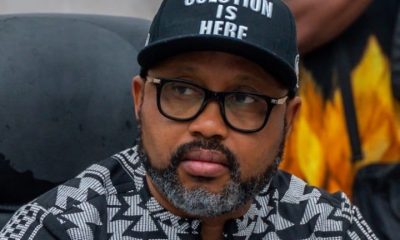
 News7 days ago
News7 days agoAnambra South Bye-Election: APC Chief Rescues Deputy Gov Caught In Vote Buying From Angry Youths
By Chuks Collins, Awka
-

 Celebrity/Entertainment1 day ago
Celebrity/Entertainment1 day agoHow Nigerian TikToker Geh Geh Made ₦45 Million in One Night
-

 News5 days ago
News5 days agoNigerian visa applicants must provide 5-yr social media history — US embassy
-
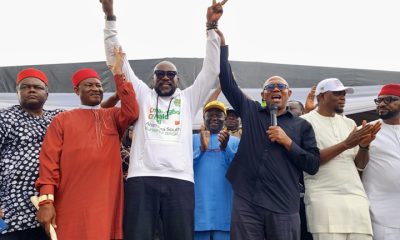
 Analysis6 days ago
Analysis6 days agoSystemic Sabotage: How APC, INEC Colluded To Undermine Amamgbo’s Senatorial Bid
By Arthur Ezechukwu
-

 News3 days ago
News3 days agoTerrorist Organisation: APC, PDP Members in US, UK, France Risk Deportation
-

 Celebrity/Entertainment5 days ago
Celebrity/Entertainment5 days agoWhy single mothers can’t raise boys into proper men — Jim Iyke
-

 News7 days ago
News7 days agoBREAKING: Troops arrest Nigeria’s most wanted terror kingpin
-

 News2 days ago
News2 days agoVandal electrocuted while vandalizing Aba power infrastructure







